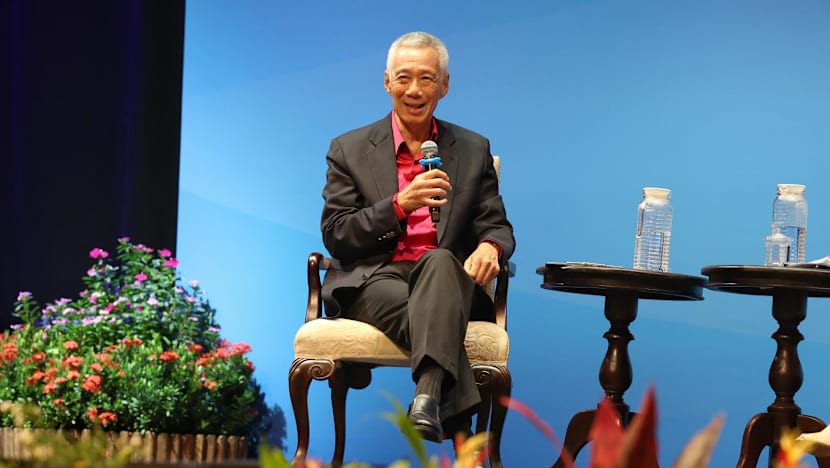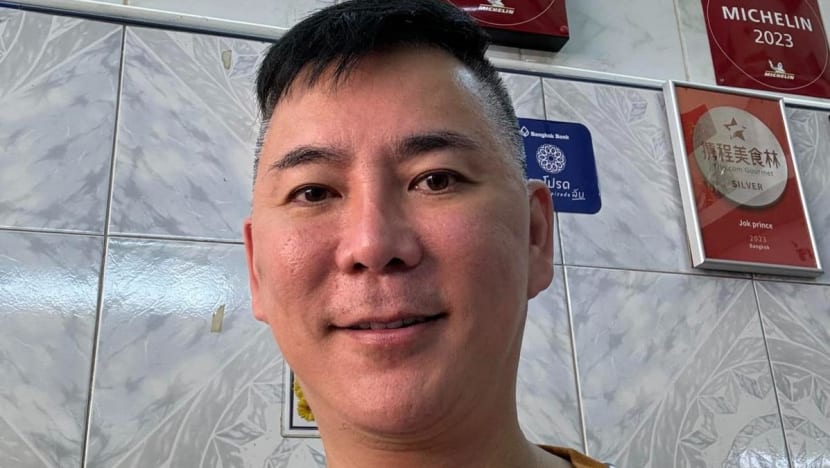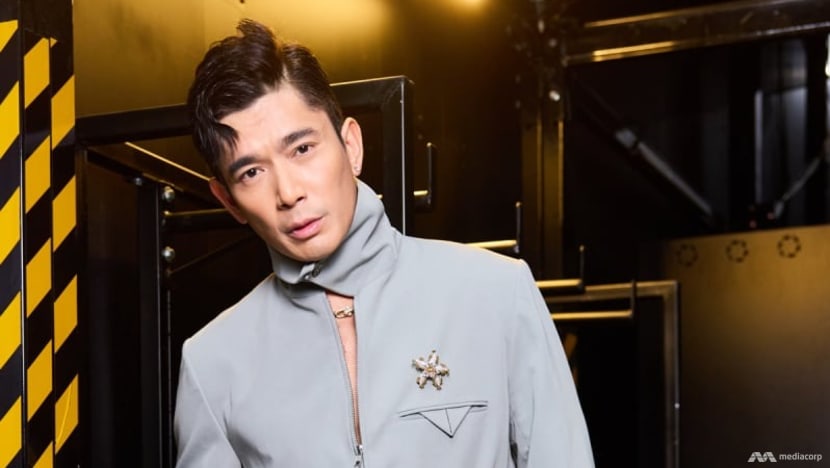- Joined
- Sep 2, 2023
- Messages
- 5,311
- Points
- 113
https://www.channelnewsasia.com/sin...ity-many-singaporeans-lee-hsien-loong-5340066
Skip to main content


Senior Minister Lee Hsien Loong at the Kent Ridge Ministerial Forum on Sep 9, 2025. (Photo: Ministry of Digital Development and Information)
Listen
6 min
New: You can now listen to articles.

Tang See Kit
10 Sep 2025 07:07AM (Updated: 10 Sep 2025 10:04AM)
Read a summary of this article on FAST.
FAST
SINGAPORE: While the national identity has grown stronger as generations of Singaporeans tide through different crises, it may not be the only or most important identity for many Singaporeans, said Senior Minister Lee Hsien Loong on Tuesday (Sep 9).
Other aspects, such as race and religion, also form key parts of people’s lives, and there is a need to recognise that, he said.
“For many people, being Singaporean is important, but it may not be the most important part of your identity, and we have to accept that's the way people are,” said Mr Lee at an annual National University of Singapore (NUS) forum.
Centered on the topic of Singapore’s national identity, the Kent Ridge Ministerial Forum 2025 was moderated by NUS Associate Professor Leong Ching and attended by about 800 students and academic staff from various local autonomous universities, tertiary and pre-tertiary institutions.
A recent survey by the Institute of Policy Studies showed that while nationality was consistently ranked as the most important part of Singaporeans’ identity, a growing share of Singaporeans are seeing religion as a key element in their lives.
“I think I can say that the national identity is stronger but at the same time, it is not the only tribe which we belong to, because we all have different layers to our identity,” said Mr Lee.
Apart from race and religion, language matters too, especially for the older generations. People may also have different political views and sexual orientations which shape their social circles and perspectives on the world, he said.
“So, these are all other aspects that we must know that we are one people but we are not all identical and there are fault lines which we have to guard.”
Mr Lee was asked by Assoc Prof Leong if he viewed globalisation or internal fractures along fault lines as the bigger challenge to this sense of national identity.
He said global developments and “powerful external forces” will pull the nation in different directions from time to time.
“Our job is to resist that and to remember: ‘Yes, I am Muslim, or I'm Chinese, or I'm Indian, but I'm also Singaporean,” said the Senior Minister.
“And I do hold something here, I belong here, and I should look at the world, starting from here.”
Mr Lee said even though the younger generations now face different choices compared to older Singaporeans, being Singaporean remains a decision of “choice and conviction”.
This analogy came from one of Singapore’s founding fathers and the country’s first Foreign Minister S Rajaratnam, who had said being Singaporean is not a matter of ancestry, but of conviction and choice.
Mr Lee noted that back then, the country’s founding generation faced the options of whether to stand up and fight for the kind of Singapore they believed in, or do nothing and accept their fates.
“For that generation, the choice was to stand, fight, and build,” he said.
For the younger generation, a choice remains, although they will have to pick between continuing the mission to make Singapore better for the next generation, or spreading their wings elsewhere.
“I think for this generation too, it has to be choice and conviction. If you just so happen to be here and tomorrow the wind blows ‘poof’ and … tomorrow you won’t be here, and Singapore won’t be here,” he said.


These “adjustments” have shaped Singaporeans into the “distinctive” way they are.
“That’s why … when you see (a Singaporean) overseas, you kind of know he’s one before he opens his mouth,” said Mr Lee.
“There is something distinctive … and it comes from us having lived together, made the accommodations and become similar to one another.”
He added: “That’s why a Chinese Singaporean is different from a Chinese from China, and likewise for an Indian Singaporean. Likewise for a Malay Singaporean.” What some have suggested for Singapore to do – but it has not – is to “pretend we are all the same”.
“We have not gone that way because we don’t believe it works,” said the Senior Minister.
“If we don't acknowledge the reality of the differences, I think we only push the problems under the surface.”

He encouraged young Singaporeans to “roll up (their) sleeves” and be involved to help make Singapore better.
“It can be cleaning the beach. It can be greening the environment. It can be doing social work, taking care of down and outs. It can be promoting entrepreneurialism,” he said.
“Any number of issues, but be committed to do something (and) make Singapore better. In doing it, you will find that you will feel yourself belonging to this place.”
Mr Lee said that will entail roping in “good people” who have a sense of mission into politics and have them elected.
He reiterated the need for Singapore to maintain political stability, citing recent unrest and leadership changes in several countries.
What’s also needed is a united society.
“If you divide along race, language and religious lines … you can't have good government, you can't have good economic growth, and you cannot have … an equal society,” said Mr Lee.
Social class may be another fault line that could divide society, he cautioned, stressing the need for Singaporeans to be united.
“We will have to be quite a united society where everybody feels a stake, everybody feels that the country is working for it, and then you can have politics which are working.”
Source: CNA/sk(rj)
Subscribe here








Skip to main content

CNAR Search menu
CNAR Primary Menu
CNAR Secondary Menu
Singapore
'Have to accept' that national identity may not be the most important identity for many Singaporeans: SM Lee
Other aspects, such as race and religion, also form key parts of Singaporeans' identity, says Senior Minister Lee Hsien Loong at a forum with students.
Senior Minister Lee Hsien Loong at the Kent Ridge Ministerial Forum on Sep 9, 2025. (Photo: Ministry of Digital Development and Information)
Listen
6 min
New: You can now listen to articles.

Tang See Kit
10 Sep 2025 07:07AM (Updated: 10 Sep 2025 10:04AM)
Read a summary of this article on FAST.
FAST
SINGAPORE: While the national identity has grown stronger as generations of Singaporeans tide through different crises, it may not be the only or most important identity for many Singaporeans, said Senior Minister Lee Hsien Loong on Tuesday (Sep 9).
Other aspects, such as race and religion, also form key parts of people’s lives, and there is a need to recognise that, he said.
“For many people, being Singaporean is important, but it may not be the most important part of your identity, and we have to accept that's the way people are,” said Mr Lee at an annual National University of Singapore (NUS) forum.
Centered on the topic of Singapore’s national identity, the Kent Ridge Ministerial Forum 2025 was moderated by NUS Associate Professor Leong Ching and attended by about 800 students and academic staff from various local autonomous universities, tertiary and pre-tertiary institutions.
A recent survey by the Institute of Policy Studies showed that while nationality was consistently ranked as the most important part of Singaporeans’ identity, a growing share of Singaporeans are seeing religion as a key element in their lives.
“I think I can say that the national identity is stronger but at the same time, it is not the only tribe which we belong to, because we all have different layers to our identity,” said Mr Lee.
Apart from race and religion, language matters too, especially for the older generations. People may also have different political views and sexual orientations which shape their social circles and perspectives on the world, he said.
“So, these are all other aspects that we must know that we are one people but we are not all identical and there are fault lines which we have to guard.”
Mr Lee was asked by Assoc Prof Leong if he viewed globalisation or internal fractures along fault lines as the bigger challenge to this sense of national identity.
He said global developments and “powerful external forces” will pull the nation in different directions from time to time.
“Our job is to resist that and to remember: ‘Yes, I am Muslim, or I'm Chinese, or I'm Indian, but I'm also Singaporean,” said the Senior Minister.
“And I do hold something here, I belong here, and I should look at the world, starting from here.”
Mr Lee said even though the younger generations now face different choices compared to older Singaporeans, being Singaporean remains a decision of “choice and conviction”.
This analogy came from one of Singapore’s founding fathers and the country’s first Foreign Minister S Rajaratnam, who had said being Singaporean is not a matter of ancestry, but of conviction and choice.
Mr Lee noted that back then, the country’s founding generation faced the options of whether to stand up and fight for the kind of Singapore they believed in, or do nothing and accept their fates.
“For that generation, the choice was to stand, fight, and build,” he said.
For the younger generation, a choice remains, although they will have to pick between continuing the mission to make Singapore better for the next generation, or spreading their wings elsewhere.
“I think for this generation too, it has to be choice and conviction. If you just so happen to be here and tomorrow the wind blows ‘poof’ and … tomorrow you won’t be here, and Singapore won’t be here,” he said.
Related:

More Singaporeans see religion influencing their views in other areas of life: IPS study

More Singapore residents want the government to be more involved in race, religious issues: IPS survey
“SOMETHING DISTINCTIVE” ABOUT A SINGAPOREAN
Asked by a student what are things that have worked for Singapore’s forging of its identity, Mr Lee pointed to the way the society was built via policies that allow different groups of people to come together to learn how to compromise and collaborate with one another.These “adjustments” have shaped Singaporeans into the “distinctive” way they are.
“That’s why … when you see (a Singaporean) overseas, you kind of know he’s one before he opens his mouth,” said Mr Lee.
“There is something distinctive … and it comes from us having lived together, made the accommodations and become similar to one another.”
He added: “That’s why a Chinese Singaporean is different from a Chinese from China, and likewise for an Indian Singaporean. Likewise for a Malay Singaporean.” What some have suggested for Singapore to do – but it has not – is to “pretend we are all the same”.
“We have not gone that way because we don’t believe it works,” said the Senior Minister.
“If we don't acknowledge the reality of the differences, I think we only push the problems under the surface.”
Related:

The Big Read: Is Singapore becoming a monolingual nation and is that a boon or bane for national identity?
On how the government can strengthen its national identity, Mr Lee brought up the Forward Singapore exercise, launched by the country’s fourth-generation leadership team as a nationwide movement to review and refresh Singapore's social compact.He encouraged young Singaporeans to “roll up (their) sleeves” and be involved to help make Singapore better.
“It can be cleaning the beach. It can be greening the environment. It can be doing social work, taking care of down and outs. It can be promoting entrepreneurialism,” he said.
“Any number of issues, but be committed to do something (and) make Singapore better. In doing it, you will find that you will feel yourself belonging to this place.”
MAINTAINING POLITICAL STABILITY
Among others, Mr Lee was also asked by students for his take on how Singapore can maintain an “exceptional” political system. This was a factor that he had mentioned during last year’s May Day rally as a key for a small country like Singapore to stay successful.Mr Lee said that will entail roping in “good people” who have a sense of mission into politics and have them elected.
He reiterated the need for Singapore to maintain political stability, citing recent unrest and leadership changes in several countries.
What’s also needed is a united society.
“If you divide along race, language and religious lines … you can't have good government, you can't have good economic growth, and you cannot have … an equal society,” said Mr Lee.
Social class may be another fault line that could divide society, he cautioned, stressing the need for Singaporeans to be united.
“We will have to be quite a united society where everybody feels a stake, everybody feels that the country is working for it, and then you can have politics which are working.”
Source: CNA/sk(rj)
Sign up for our newsletters
Get our pick of top stories and thought-provoking articles in your inboxSubscribe here

Related Topics
Lee Hsien LoongAlso worth reading

Jail for women who swapped seats near roadblock because one of them was driving without licence

Former celebrity hairdresser Addy Lee gives up Singapore PR status, empties CPF account to retire

Mediacorp actress Fang Rong announces 'departure' from acting: 'I felt that there was something deeper I was missing'

Actor Elvin Ng says that at 45, he’s at awkward phase of career where he looks too young to play dad roles
CNA Sections- Asia
- Singapore
- Business
- CNA Insider
- Lifestyle
- Luxury
- TODAY
- CNA938 Live
- Commentary
- Interactives
- Live TV
- Sport
- Special Reports
- World
- Newsletters
Copyright© Mediacorp 2025. Mediacorp Pte Ltd. All rights reserved.
Official Domain | Terms & Conditions | Privacy Policy | Report Vulnerability | Online Links Policy
Official Domain | Terms & Conditions | Privacy Policy | Report Vulnerability | Online Links Policy






